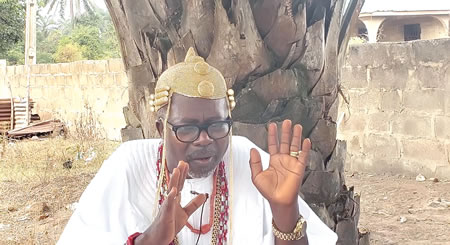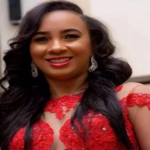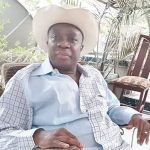DID you have any premonition that you would become crowned oba?
As a child I remember when I was about three years old, I was playing with some of my colleagues and somebody was passing by. I can’t say whether he was a clergyman, but I remember he was passing by while some of us were playing on the road. You know in a village setting in Lalupon and the man just stopped, looked at me, and told my parents who were sitting close by us not to hit me on the head if they must beat me at all. He said I wouldl be a great person in life. Also, before my father died, he was made the Balogun Lalupon where we were brought up and he threw a big party. The late Alara, around 1993 to 1994 came and was furious with my father, scolding him that as a prince he should not have accepted chieftaincy title from Lalupon people. He said the Alara crown is at home and shouldn’t be receiving such a title. He even refused to eat until we persuaded him and assured him that nothing of such would happen again.
When he left I asked my dad what the man was saying, he then told me that we are crown princes of Ara and after the demise of the then Alara, we also have right to the throne. But I did not remember any of this until the demise of my father and my late uncle invited me to Ara and told me not to leave him alone. The very first time I came to Ara, the way I was received showed something was about to happen. Two elderly women, while welcoming me said I should be bold and courageous to confront anything. At that point, having noticed that I was confused, my late uncle then explained that the family is battling a court case after which the coast will be cleared for us to ascend the vacant throne. He even assured me of his support if I was interested in the throne.
Now that you have become Alara of Ara, what are the things that you will miss?
Honestly I can tell you that am not missing anything. Though I am a party person, I have not been bored and I can’t see myself getting bored with all the people around me; there are so many interesting things. People will come to discuss so many things around you. There are so many things that get me so occupied that I can’t even be bored around here. I love the environment, the fresh air and when I need something in terms of food I get almost everything fresh. I was brought up in a village setting, so now that I’m here, it is just like I am back home am enjoying everything. I have not been missing anything and to make life easier, I have already set up something here that would ensure that I practise medicine and almost everyday I go there and within the last one week, I did two surgeries. What I am missing is Lagos traffic.
You were playing some social roles as a stalwart in Rotary before becoming a king. How do you plan to harmonise your social services, medicine and royalty?
After making up my mind to come here, and upon taking this role I have seen that there is no much difference in what am doing in Lagos and what I am going to do here. Also, Rotary has prepared me for this leadership and service and coming here is about the call to service. As a Rotarian, my week is not complete until I attend the rotary meeting. I am still waiting for a little more time because there are Rotary clubs around. Rotary Club of Osogbo actually holds meeting on Wednesday too. It is a twin club, like a sister to my club at Gbagada. We have done things together over the years. But what I have done here is to have fellowship. I am now closer to God. Even by my rules, I need to be closer to God for His protection, wisdom. I have been listening to the word of God; there are these Jehovah witness preachers, you won’t believe that they are the best who have knowledge of the Bible. So they come around; we do fellowship together every Wednesday. But the medical thing that we are working on is not for profit. I know money is not here. This is essentially a poor society. It is unfortunate we have two government health centres. One is not functional and the other, you can’t get even Paracetamol there. For this reason, we conceive a private practice, at least that can deliver service to the people whether they have money or not.
Ara is a town with rich cultural background, one such tradition, for instance, at Ara is that people are not allowed to rear dogs. How prepared are you to protect and preserve the traditions of your people?
You see the culture here is self-preserved. I think the thing is almost in our blood.There is virtually nothing that happens here that doesn’t happen in our compound in Lalupon. In fact, a dog cannot even stray into our compound in Lalupon; that dog is considered dead . Here people are even more lenient because you see dog following Fulani herdsmen around. Nobody would dare cross our compound with a dog whether following or the dog walk astray to our compound. Then other aspects of culture that are peculiar to this environment operate in Lalupon. So whatever that is happening here, we are very much aware. We have missed a lot in terms of our cultural heritage in this town. 10 years without leadership is a lot. We have Alami festival, egungun festival and other cultural events that were missing would be reactivated to make the town a sort of tourist destination. I understand that because of religion the late Alara of Ara left a few things out, but now I see all these things as part of what I can develop to make Ara another centre of culture and that can be a destination for tourists.
You are a Christian of Anglican faith. I want to know if some of the doctrines you have internalised all of years would not interfere with all these traditional practices?
The problem is that a lot of us mix culture and tradition with religion. My own religion is Christianity. That has nothing to do with our culture. Yoruba people say “igba ti agbado o ti de aye, nkan ni adiye nje.” Before we embraced Christianity, our people had their own beliefs: whether Ogun or whatever. Those who still believe in them are still professing their beliefs and this would not stop my Christianity. We are a third world country like India. 90 per cent of Indians practice Hinduism. If you go to a typical Indian office, he will have one god or the other that he is worshipping. Are they not doing well? So why should we not respect people’s beliefs? I dont see anything wrong in other people believing in traditional religion.
As the traditional head, what are the major challenges you have noticed in this community that deserve government attention
In fact, the challenges are just too many. Let me just start by telling you that the three challenges of the third world are very rife here. Poverty, ignorance and diseases are very visible here. I know people who will wake up here early in the morning and have nothing to eat, but because this is an agrarian society, life is very simple. People would go to their farms and by the time they walk up and down they would get something to eat, to sell to get money or something to eat at home. But health- wise, we have a whole lot problems. The closest health facilities is in Ejigbo and with poor transport system, you can imagine how people are dying from many minor ailments. You know malaria, as simple as it is, is very deadly here. In fact, my people die of malaria more than HIV/AIDS.
Earlier when you spoke about the community not having a ruler for 10 years. Now that you have ascended the throne, what are your plan to meet the expectations of the people?
For a community that has no leader for 10 years or even at the time we have leadership, the exposure was limited, being of little education if they had any, the society has been deprived of so many things and everybody has been expecting that this new oba is a “been to”; he must come with a lot of goodies. Yes, I am prepared that none of those with expectations would ever be disappointed. I have got a lot of contacts in government, among my friends and NGOs. And now that I am even seated on the throne the work, has started. Before now, I have been getting a lot of support, a lot of promises. Even your being here is also a major support You see the expectations in terms of provision of infrastructure, helping our people to get job, helping our people to secure micro credit. We have started on all these. But the first thing which is health facility is in my own area of interest. Before now, during dry season like this, people would depend on local river for water supply and you can imagine people drinking the same water which others defecate in. But in the last four months, we were able to sink three boreholes and two are on the way. By the time we have like 20 boreholes in the town, you won’t have to work more than 100 metres before you get water. That will be a major breakthrough. Then our schools: we have started talking to PTAs. We are trying to recruit retired teachers. They are much better than these funny people working around. We would make sure that we get good for our children.
How was growing up for you?
As I have told you,I grew up in Lalupon. I went to St Luke’s Anglican School Lalupon. From there, I proceeded to Lagelu Grammar School Ibadan, where I was the head boy. I had a bit of A level studies at Federal Government College Ilorin. I did not complete it because I just felt I needed to move on faster. So I went to the University of Lagos to read Medicine. Then I went into surgery. I did part of my practice at Awujobi Clinic, Eruwa and then National Orthopaedic Igbobi, before I moved into private practice. I have been in private practice since 1992 at Adesola Clinic, Bariga, Lagos State.
What were the pranks you usually played when you were young
I was not a serious science student. In my primary school days then I was small. I left primary school at the age of 11 or 10. Because of financial whatever, my grandmother insisted I should repeat primary six. I did even like a year. I started following my dad around as an apprentice bricklayer. By the time I entered Lagelu Grammar School, I was a mature student because I was already 13 years old then. So most of my classmates were 10 or 11 but that did not stop me from being sociable. I wasn’t a truant, but because I was brilliant some of my teachers did not know the havoc we could wreak in the hostel, because I remember one day we hired a cab from the town without having any money. Of course, we told the driver to take us down very close to our gate. By the time we all alighted, everyone disappeared. We scaled school fence to attend parties. But being the head boy then I was not being accused of influencing other boys to misbehave. They were expelled from the boarding house, but that did not stop us from making our papers. We were known in almost every school in Ibadan, especially the girl schools. Even without invitation, we would go and represent our school in debate, quiz and they would recognize us because we are always winning. We were known among the schools as the happening boys.
How did you meet your wife?
I met my wife when we were doing our NYSC. She was the smallest in the camp. They were calling her baby corper and I had a Volkswagen then and a few of us had cars while in the camp. I was always taking her around protecting her from the wild boys in the camp. So they were calling me “Baba corper” because she was “baby corper”. When we met, I was busy setting up the camp clinic when she just passed and I said how come this kindergarten is one of us. She was very brilliant, at 21, she already had BSc in Building Technology from Ife. For about three to four years, we did boyfriend and girlfriend before we eventually got married. So but the truth is that there are oloris now.
What message do you have for the people of Ara?
I have told you that we have missed a lot of things. I have been calling out to them to, first of all, just bury the hatchet. We have had a lot of issues around my coming to the throne. I urged that we should all forget that. Now God has installed me. I won’t say anybody did it. It is God; we should bury the hatchet. We need to work together. We have a lot to work; we have missed a lot. We need to be prayerful because I just believe that it is only this God that can assist us to achieve all want to achieve.






